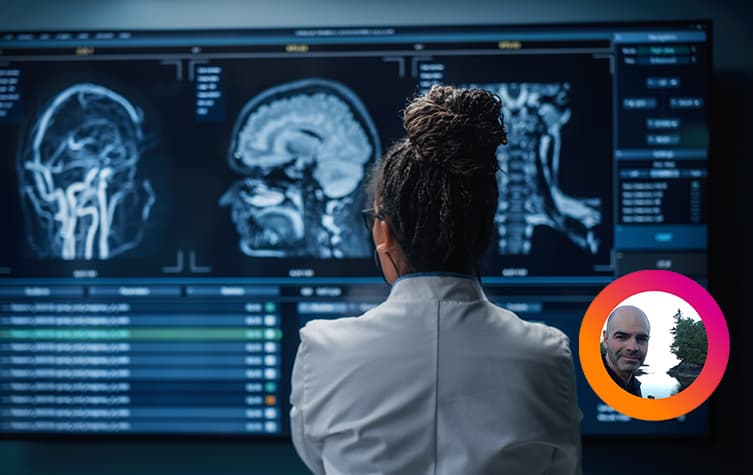Introduction
In a world where the boundaries of innovation continue to expand, it's evident that the global landscape is undergoing a seismic shift. Recent developments like the Hiroshima Accord, underscore the urgency of international cooperation in navigating the implications and applications of cutting-edge technologies. As part of this accord, a new "UK-Japan Science and Technology Cooperation Framework" is set to facilitate collaboration on revolutionary fields such as quantum computing, biotechnology, and artificial intelligence.
Among these, one stands out in its potential to reshape industries like never before: Generative AI (GenAI). Let’s embark on a journey to explore GenAI, its capabilities, the ethical landscape it traverses, all while recognizing the imperative for global collaboration on emerging technologies.
Understanding Generative AI
GenAI, is a subset of artificial intelligence (AI) that excels in creating new content, whether it's in the form of text, images, videos, or even music. At its core, GenAI leverages deep learning techniques to mimic human-like creative processes. Rather than relying on pre-programmed rules or templates, it generates content by learning patterns from extensive datasets. A key innovation is the use of neural networks, particularly models like GPT (Generative Pre-trained Transformers) and their successors. These models are trained on vast amounts of data from the internet, enabling them to understand context, grammar, even nuances of language. As a result, they can generate human-readable text that often appears indistinguishable from something written by a human.
What sets GenAI apart is versatility, it's not limited to a specific domain but can adapt to various tasks and industries. This adaptability is particularly advantageous as it can automate content generation for technical documents, support articles, or marketing materials with remarkable precision. GenAI doesn't just generate content randomly, it follows patterns and guidelines provided through prompts. However, while GenAI is a powerful tool, it's not without challenges. Ethical concerns, such as bias and misinformation, must be carefully managed or risk reputational damage and a loss of trust.
Navigating Ethical and Integrity Concerns
While the potential benefits of GenAI are undeniable, it's crucial to navigate potential ethical concerns or risk reputational damage:
- Bias and Fairness:
- Employ diverse datasets and conduct regular audits of GenAI-generated content.
- Collaborate with experts in fairness and ethics to ensure your AI models align with your organization's values.
- Misinformation:
- Human overseeing and fact-checking remain essential to combat misinformation.
- Develop automated tools to flag potentially inaccurate information, allowing for swift corrections.
- Hallucinations:
- Vigilance in finding and addressing content generated by GenAI that may appear plausible but is entirely fabricated.
- Establish robust review processes to confirm information before dissemination.
- Integrity:
- While GenAI can be a powerful tool for content generation, knowledge retrieval, and innovation, it also poses certain risks, especially in terms of Intellectual Property (IP) protection. One significant concern is the inadvertent disclosure of proprietary information when GenAI interacts with sensitive company data./li>
Mitigation
It’s essential to implement stringent security measures, access controls, encryption protocols and legal safeguards such as non-disclosure agreements (NDAs). Additionally, organisations should adopt a clear IP protection policy, strategically limiting GenAI's access to critical IP data while enabling its prowess in non-sensitive tasks. Striking this balance ensures that GenAI enhances our capabilities while upholding the sanctity of our intellectual property.
Crafting Excellence?
The following is not meant as an exhaustive list, but we have found that by following this 5-point guide, we can get it close:
Clear Objectives: Define goals and aims clearly before using GenAI to guide its implementation effectively.
Effective Prompting: Craft precise, well-structured prompts that align with aims to influence the quality of GenAI's output.
Ethical Oversight: Implement rigorous ethical overseeing, regularly auditing outputs for bias, misinformation, and inaccuracies.
Human Review: Verify the accuracy and quality of generated content, combining GenAI's strengths with human judgment.
Continuous Improvement: Set up feedback loops to gather user feedback, and refine prompts and fine-tuning accordingly to enhance GenAI's performance.
Can we make it better?
One notable enhancement would be integrating GenAI with enterprise data repositories. This will allow organisations to harness the power of AI to rapidly access, retrieve, and synthesise valuable insights, policies, procedures, and data specific to them. It is this integration that unlocks the value in data, empowering businesses with a dynamic and responsive tool that not only streamlines decision-making processes but also enhances customer support and service delivery. This synergy between AI and enterprise knowledge can ultimately drive efficiency and innovation, while maintaining the integrity and relevance of the information at hand.
For example, allowing GenAI access to environmental constraints and standards when generating build code gives it capacity to streamline development, ensure compliance, optimise resource allocation, and reduce errors. Integrating these crucial factors, GenAI creates code that adapts to specific environmental conditions, resulting in more efficient, scalable, and error-resistant systems. This approach not only enhances system reliability but also fosters adaptability, making software and systems better equipped to handle evolving environmental demands, ultimately driving innovation and efficiency in software development and system design.
Conclusion
Generative AI holds incredible potential in content generation and knowledge retrieval. As we conclude, we recognise the evolving global landscape and the importance of international cooperation, exemplified by initiatives like the Hiroshima Accord. Major G7 partners must unite to harness transformative technologies, including GenAI. At Fujitsu, we are committed to playing our part in this endeavour, helping both nations address challenges and create a prosperous future.
Together, we carve a path toward progress and innovation. Our industry leadership entails navigating opportunities and challenges while upholding ethical standards and ensuring integrity. GenAI empowers companies in various aspects, and with a clear understanding of its capabilities and limits, we shape a brighter future for our industry and society. This sentiment binds us to use it for good, The Fujitsu Way which encompasses our Core Values and Code of Conduct ensures Our Purpose “is to make the world more sustainable buy building trust in society through Innovation”.
Remember, Generative AI can only augment human judgment, it should never replace it…


